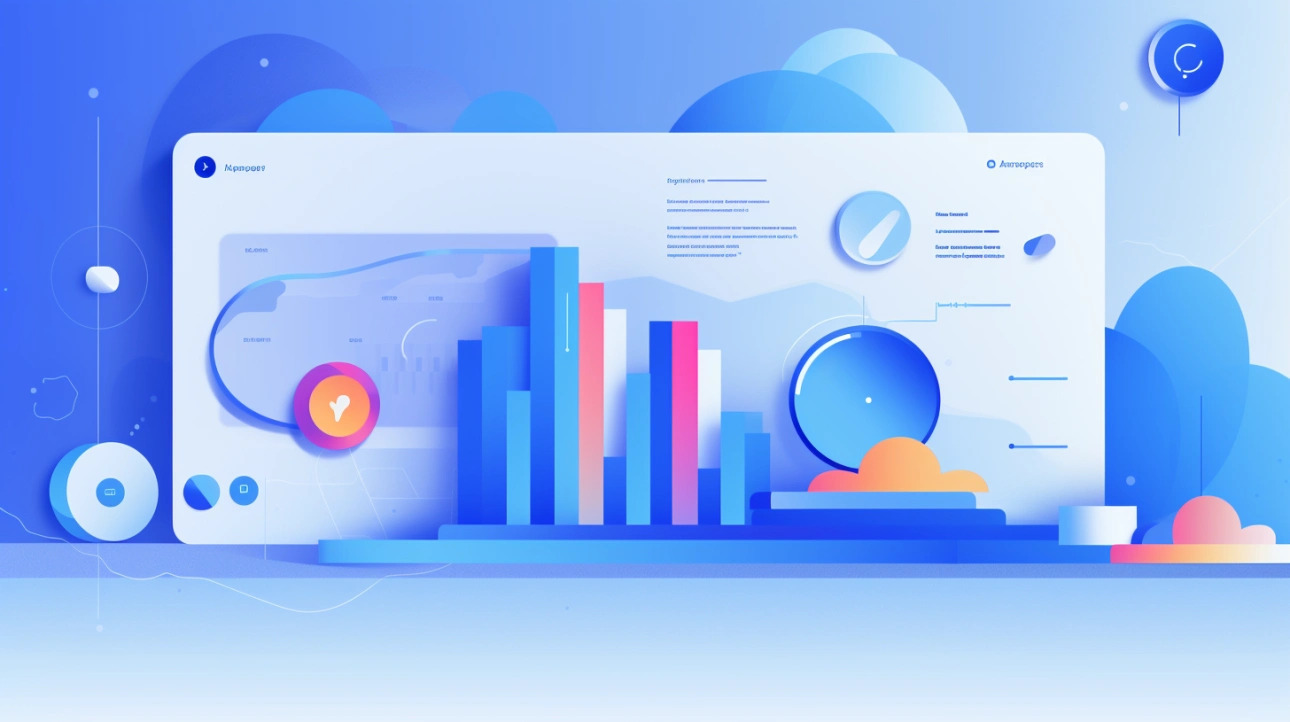20 Febbraio 2024
L'analisi Predittiva dei Dati per la strategia di marketing

Are you a sales manager or digital market er looking for new strategies to improve your marketing campaigns? Predictive data analytics may be the answer you're looking for.
In this article, you will learn howartificial intelligence is revolutionizing the marketing world and how martech companies are leveraging big data analytics to improve their strategies. You will also discover what tools are available to conduct comprehensive data analysis and how you can use this information to optimize your campaigns.
By reading this article, you will have all the information you need to start implementing predictive data analytics into your marketing strategy.
How to leverage predictive data analytics
PredictiveData Analytics offers companies a huge opportunity to optimize their marketing strategies by anticipating customer needs and predicting market trends. Thanks toartificial intelligence, digital marketers can use advanced algorithms to analyze huge amounts of data and gain valuable predictive insights.
This approach not only allows them to better understand consumer behavior, but also to improve the personalization of advertising campaigns and sales offers. For example, a sales manager could use predictive analytics to identify potential customers most likely to buy, thereby creating targeted strategies to maximize sales opportunities.
In addition, martech companies can leverage this technology to optimize data management and improve the effectiveness of their marketing automation solutions. In an increasingly data-driven environment, predictive analytics is therefore a key element in gaining competitive advantages and driving success in the digital marketing industry.
The advantages of artificial intelligence in marketing
Artificial intelligence offers numerous advantages in the context of digital marketing. With predictive data analytics, market trends can be predicted and customer needs anticipated, enabling companies to proactively adapt their marketing strategies.
For example, a digital marketer might use advanced algorithms to analyze consumers' past behaviors and predict which products or services they might be interested in in the future. This makes it possible to create highly personalized and targeted advertising campaigns, greatly improving the effectiveness of marketing activities.
In addition,artificial intelligence can be used to automate complex processes such as lead management or audience segmentation, enabling martech companies to optimize their services and offer increasingly efficient solutions to their customers.
In the professional context, the use ofartificial intelligence enables sales managers to more accurately identify potential customers inclined to purchase, thereby creating targeted strategies to maximize sales opportunities. In summary, artificial intelligence represents a significant opportunity to improve the performance of marketing strategies and gain competitive advantages in the digital industry.
Tools for big data analysis
In the context of big data analytics, it is crucial to use efficient and reliable tools to manage and analyze large amounts of data effectively. However, there are challenges in using these tools, such as the complexity of the data itself and the need to ensure the security and privacy of the information.
For example, if a martech company uses big data analytics to identify market trends, it may have to manage huge streams of data from different sources, such as social media, online transactions, and customer feedback.
Ultimately, using the right tools can make a difference in the efficiency of big data analytics and the ability of companies to derive value from these massive amounts of information.
How martech companies use data analytics
Martech companies can benefit tremendously from using data analytics to inform their marketing strategies. However, it is important to address some of the challenges associated with this process. One practical solution is to invest in advanced technologies such as machine learning, which can automate and optimize data analysis so that market trends and consumer behaviors can be identified more quickly and efficiently. In addition, it is critical to ensure data security and privacy, so it is advisable to use specialized software to manage large streams of information securely. Finally, martech companies should consider implementing business intelligence tools that enable them to visualize and interpret data clearly and intuitively, facilitating decision making. Ultimately, by adopting these solutions, companies can maximize the value of data analysis and greatly improve their marketing strategies.
Improving strategies with predictive analytics
Predictive data analytics is a key element in improving marketing strategies. Through the use ofartificial intelligence and advanced big data analysis software, martech companies can gain a significant competitive advantage in the marketplace.
By automating the data analysis process, market trends and consumer behavior can be identified more quickly and efficiently, enabling companies to adapt their strategies in real time. In addition, investing in business intelligence tools to visualize and interpret data clearly and intuitively can facilitate decision making, enabling companies to achieve better results with less effort.
We therefore recall the importance of considering these tips to maximize the value ofdata analysis and greatly improve martech companies' marketing strategies.
Leverage data for your marketing strategy
Learn how to use predictive analytics to optimise your resources
Articoli precedenti

artificial intelligence
AI, LLM e agenti intelligenti: il futuro dell’integrazione secondo Quarkus
2/03/2025

artificial intelligence
L’Intelligenza Artificiale tra governance, etica e sostenibilità: un dibattito aperto
1/03/2025

CRM & Marketing automation
CRM e marketing automation: l’Integrazione essenziale per il 2025
18/02/2025